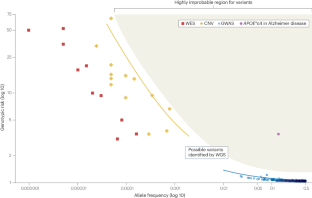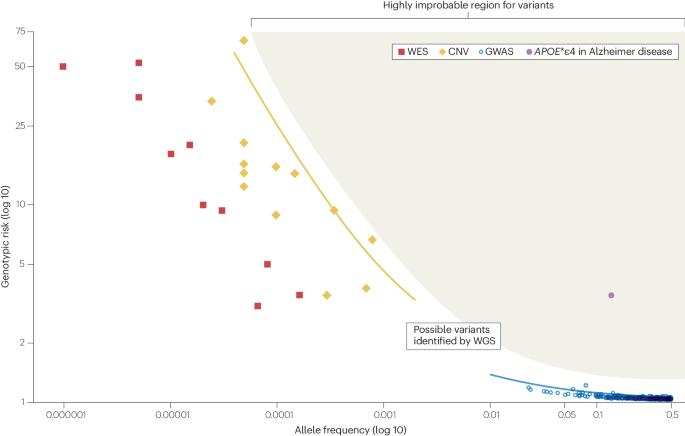精神分裂症基因组学:遗传复杂性和功能性见解。
IF 28.7
1区 医学
Q1 NEUROSCIENCES
引用次数: 0
摘要
确定精神分裂症的病因一直是一个众所周知的棘手问题,几个世纪以来,许多调查方法都无法解决这个问题。近几十年来,基因组研究取得了数百项可靠的研究结果,其中近 300 个常见基因变异(通过全基因组关联研究)和 20 多个罕见变异(通过全外显子组测序和拷贝数变异研究)被认为是精神分裂症的危险因素。与此同时,功能基因组学和神经生物学研究也提供了有关神经畸形患者以及越来越多的精神分裂症患者大脑细胞组成及其相互联系的异常详细的信息。综合来看,这些研究结果表明精神分裂症的发病机制具有意想不到的复杂性,表明精神分裂症是由多个基因组合(多基因)而非单一基因引起的。在这篇综述中,我们将介绍目前我们所了解的精神分裂症的遗传学知识,并探讨这些信息对神经生物学的影响。本文章由计算机程序翻译,如有差异,请以英文原文为准。


Schizophrenia genomics: genetic complexity and functional insights
Determining the causes of schizophrenia has been a notoriously intractable problem, resistant to a multitude of investigative approaches over centuries. In recent decades, genomic studies have delivered hundreds of robust findings that implicate nearly 300 common genetic variants (via genome-wide association studies) and more than 20 rare variants (via whole-exome sequencing and copy number variant studies) as risk factors for schizophrenia. In parallel, functional genomic and neurobiological studies have provided exceptionally detailed information about the cellular composition of the brain and its interconnections in neurotypical individuals and, increasingly, in those with schizophrenia. Taken together, these results suggest unexpected complexity in the mechanisms that drive schizophrenia, pointing to the involvement of ensembles of genes (polygenicity) rather than single-gene causation. In this Review, we describe what we now know about the genetics of schizophrenia and consider the neurobiological implications of this information. In recent years, genomic studies have identified numerous genetic variants as risk factors for schizophrenia. Sullivan et al. describe our current understanding of the complex genetic architecture of schizophrenia and consider how the genomic findings can be interrogated to boost our understanding of the neurobiology of the disorder.
求助全文
通过发布文献求助,成功后即可免费获取论文全文。
去求助
来源期刊

Nature Reviews Neuroscience
NEUROSCIENCES-
自引率
0.60%
发文量
104
期刊介绍:
Nature Reviews Neuroscience is a multidisciplinary journal that covers various fields within neuroscience, aiming to offer a comprehensive understanding of the structure and function of the central nervous system. Advances in molecular, developmental, and cognitive neuroscience, facilitated by powerful experimental techniques and theoretical approaches, have made enduring neurobiological questions more accessible. Nature Reviews Neuroscience serves as a reliable and accessible resource, addressing the breadth and depth of modern neuroscience. It acts as an authoritative and engaging reference for scientists interested in all aspects of neuroscience.
 求助内容:
求助内容: 应助结果提醒方式:
应助结果提醒方式:


